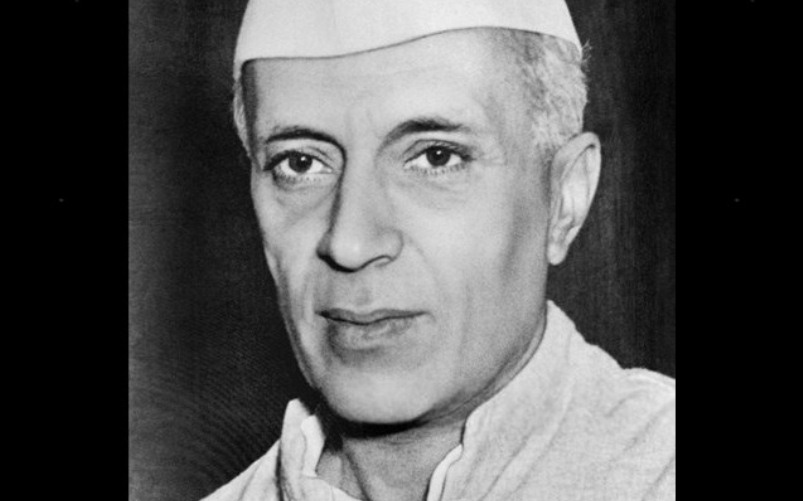
By Palwai Raghavendra Reddy
Prime Minister Narendra Modi time and again finds an opportunity to attack the Congress and its present leadership. However, in the ongoing budget sessions of the Parliament, Modi in his two speeches, first in Lok Sabha and then in Rajya Sabha, chose to attack India’s first Prime Minister Pandit Jawaharlal Nehru.
And in the process, Modi pointed that Mahatma Gandhi after Independence in 1947 said there is no need of the Congress party, and it should be dissolved! But this is not entirely true, and Prime Minister chose to twist the statements made by Mahatma Gandhi to suit his party’s (Bharatiya Janata Party or BJP) agenda.
Over the years, many political parties and especially the right-wing leaders, have highlighted Mahatma Gandhi’s ‘last will and testament’ in which he spoke about disbanding the existing Congress to flower into a “Lok Sevak Sangh”, which will upkeep the means with which India attained its independence, and with which equality can be achieved within the Indian Society.
While this is true, there is another portion of the same testament in which Mahatma Gandhi spoke of the importance of the Congress party. Hence, selective reading of the ‘last will and testament’ is not the right approach, because on the day the testament came into existence, another statement of Mahatma Gandhi was published in his ‘Harijan’ newspaper.
In that statement Gandhi said, “Indian National Congress which is the oldest national political organization, and which has after many battles fought her non-violent way to freedom cannot be allowed to die. It can only die with the nation.” This portion of the statement published in Harijan clearly indicates how much Mahatma Gandhi believed in the Congress party and a possible role it had in the future of India.
‘Jawahar will be my successor’
Prime Minister Modi’s latest speeches are also an attempt to highlight a non-existing rift between Mahatma Gandhi and Pandit Nehru. These attempts were being made not now, not few years back, not few decades back, but ever since both Gandhi-Nehru existed in flesh and blood in this country. During the struggle for India’s independence when Congress was striving hard to push the British out of this country, there were forces trying hard to create a rift among the top nationalist leaders of those times.
Mahatma Gandhi himself chose to address this issue and the record straight about his relationship with Pandit Nehru. Speaking at the All-India Congress Committee meet at Wardha, Maharashtra, in January 1942, Mahatma Gandhi stated, “I have always said that not Rajaji, nor Sardar Vallabhbhai, but Jawaharlal will be my successor. He says whatever is uppermost in his mind, but he always does what I want. When I am gone, he will do what I am doing now. Then he will speak my language too.”
And with these words Gandhi clearly indicated that no actions or words will ever succeed in creating a rift between them.
Right man for the right job
Right-wing leaders want India of today believe that Nehru was wrong choice as the first Prime Minister of India, and had Sardar Vallabhbhai Patel become PM in 1947, India would have flourished must better. While no one has ever looked into the future through a crystal ball, making baseless accusations against Pandit Nehru is politically motivated to achieve ulterior motives.
It is easy to accuse Nehru of inaction, which would certainly with a baseless argument being put forward by those who oppose his legacy today. But facts paint a completely different story.
Many experts of ‘development economics’ believe and argue that India is the best example of growth among the non-totalitarians countries around the World. Daniel Thorner, an American-born expert of ‘Agriculture Economics’, who spent many years in India in 1950s and 1960s wrote that Independent India’s agricultural growth in the first twenty years was higher than the development this region witnessed over 200 years prior to that.
Thorner attributes this growth to the land reforms introduced in India during those years. These are some of the many arguments which negate the argument that India did not make any progress or even worse, India regressed when Pandit Nehru was Prime Minister.
Building an India for the future
India was importing every machine tool, small or big, in 1947; and by 1970, nearly 91% of machine tools needed for Indian industries were manufactured within the country. This is a classic example of “Self-reliance”. In building a scientific temperament among Indians, Nehru was the original architect of or “Atma nirbhar Bharat”, a term which is being made popular now.
Many a times it has been highlighted that Nehru wanted India to progress into a modern world; and has been instrumental in setting up of modern educational institutions and scientific research organizations, which are still considered as pride of India.
Setting up of IITs and other technical institutions ensure India emerged into World’s third largest technical manpower by 1970s, and this was no mean achievement considered where India started in 1947. In the 1940s, more than 3 million people in this country died of famine, and by 1980, India was producing 30% excess food grains.
Had it not been for the vision of Nehru’s government to bring in land reforms and to create a technologically advanced nation, India would have possibly not reached where the country stands today.
A true ‘Democrat’ and a perfect ‘Nationalist’
Pandit Nehru was a true democrat and a perfect nationalist. He like Mahatma Gandhi believed India was for all, and all citizens irrespective of their caste, creed, and religion were equal and had equal rights on India’s resources.
The current regime tries hard to paint a wrong image of Nehru, but there are sufficient examples from the history of independent India which substantiate the fact that he was undoubtedly the right man at the right time for the right job. Political efforts to undermine his accomplishments will certainly fail sooner than later, because history will never let his glorious legacy fall apart!
(The author is a political communications specialist, who has worked in the Indian states of Telangana, Andhra Pradesh, Odisha, Chhattisgarh and others.)

